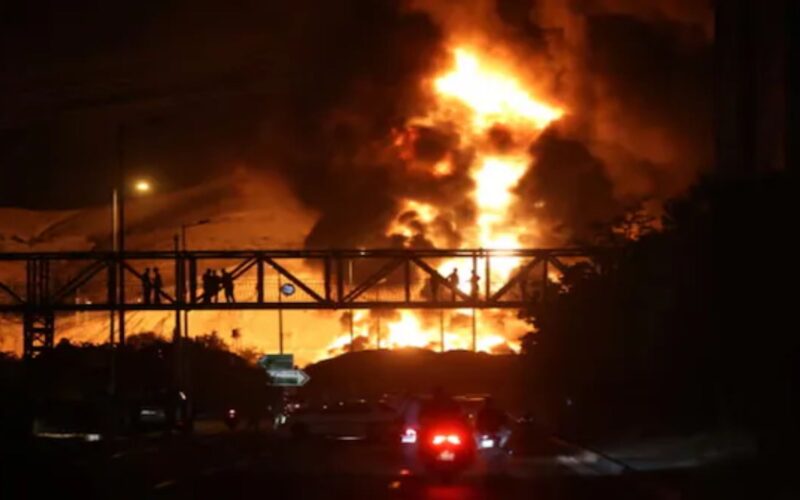Tel Aviv/Tehran (National Times): Tensions between Israel and Iran have surged to alarming new heights, with both nations launching fresh waves of missile strikes and the United Kingdom now entering the fray. On Saturday, Israeli cities, including Tel Aviv, Jerusalem, and Haifa, were rocked by explosions as Iranian missiles penetrated Israeli airspace, prompting widespread panic and emergency alerts.
The Israeli military urged citizens, particularly in the north, to take immediate shelter. “Millions of Israelis are running to shelters in northern Israel due to projectile fire from Iran,” the IDF said in a statement. One woman was killed, and over a dozen others were injured when a residential building was struck in the latest barrage, according to Magen David Adom emergency services. Within an hour, the military lifted the shelter advisory, saying the immediate threat had passed.
The renewed Iranian offensive came just hours after Israel claimed to have gained control over Tehran’s airspace, issuing a stark warning that “Tehran will burn” if further attacks occurred. Iran’s leadership swiftly retaliated with a vow to deliver a “more severe and powerful response,” threatening not only Israel but also ships and bases belonging to its allies.
UK Steps Into the Conflict
As the confrontation escalated, British Prime Minister Keir Starmer confirmed the UK has deployed fighter jets and other military assets to the Middle East. Speaking en route to the G7 Summit, Starmer emphasized that the deployments were precautionary, aimed at providing contingency support.
While calling for immediate de-escalation, Starmer maintained a firm stance: “I will always make the right decisions for the UK,” he said, when asked about Tehran’s warning that aiding Israel could lead to strikes on British bases. Starmer also disclosed he had spoken with Israeli Prime Minister Benjamin Netanyahu and former U.S. President Donald Trump, who issued a dire threat to Iran: “The country will be wiped off the map if strikes continue.”
Strikes on Nuclear Facilities Intensify
In a dramatic escalation, the Israel Defense Forces (IDF) announced early Saturday that it had launched airstrikes on multiple Iranian targets, including the Defence Ministry headquarters in Tehran and several locations allegedly linked to Iran’s nuclear weapons program.
“The targeted facilities were directly tied to the Iranian regime’s nuclear ambitions,” an IDF spokesperson claimed. The operation has led to the suspension of scheduled U.S.-Iran nuclear talks, as both nations ramp up their military actions.
Iran responded with a second round of missile strikes, and Israeli Defence Minister Israel Katz declared on social media, “Tehran is burning.” Iranian state media confirmed explosions in both eastern and western parts of the capital.
Global Community Urges Restraint
As fears mount over the potential for a broader regional war, world leaders issued urgent calls for calm. China’s Foreign Minister condemned the attacks on nuclear sites as setting a “dangerous precedent,” while the U.S., EU, and UN have all expressed grave concern over the deteriorating situation.
Meanwhile, in the background, Israel has intensified its military operations in Gaza, targeting Hamas strongholds as part of its ongoing campaign against Iranian-backed militant groups. With the region already volatile after 20 months of conflict, the current spiral between Israel and Iran risks igniting a full-scale war with global ramifications.

